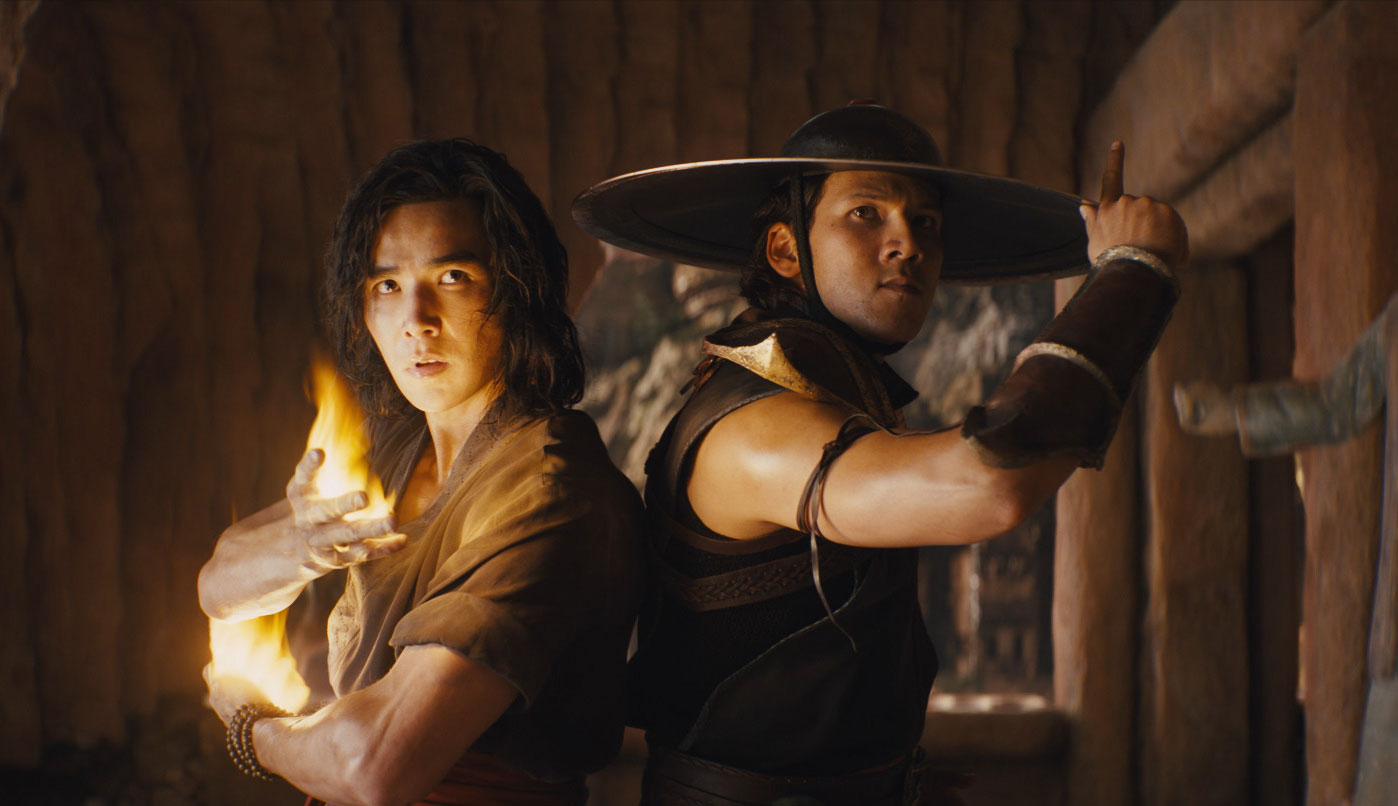
It’s odd how filmmakers have struggled to adapt video games into movies. “Double Dragon” was a simple story of two brothers taking on street gangs to rescue a lady, but the 1994 film added in mystical amulets, post-apocalyptic elements and more on top of that basic premise. Likewise, “Street Fighter” is centered on a global tournament of colorful warriors with differing fighting styles, but the two live-action entries threw in loads of unnecessary political intrigue and removed almost all traces of the original hook. In many cases, these films overthink something that’s relatively simple, believing that the stories need a lot of inflation while completely missing what truly resonated with fans. 2021’s “Mortal Kombat” adheres to the video game’s original mythos and basic setup but also seems unwilling to embrace a structure that was proven to be entertaining. Still, it delivers on the other aspects that fans of the property love, even if it’s not done in a very graceful manner.
Director Simon McQuoid’s reboot largely follows the premise of the game, wherein a deadly fighting tournament exists between Earth and an alternate dimension called Outworld that takes place once every generation. If Outworld wins ten tournaments against the champions of Earth, they will be granted the right to invade and conquer our realm, and so far, they’ve won nine. When the leader of Outworld, Shang Tsung (Chin Han), dispatches his assassins to kill Earth’s champions before the next tournament even begins, the would-be combatants — including Cole Young (Lewis Tan), Jax (Mehcad Brooks), Sonya Blade (Jessica McNamee), Liu Kang (Ludi Lin), Kano (Josh Lawson) and Kung Lao (Max Haung) — must unlock their potential under the tutelage of elder god Raiden (Tadanobu Asano) and stop these deadly machinations.
As one can tell by that recap, “Mortal Kombat” is most definitely overthinking it. And that doesn’t even take into account the film’s prologue set in 17th century Japan, where Hanzo Hasashi (Hiroyuki Sanada) and Bi-Han (Joe Taslim) — the men destined to become fan favorites Scorpion and Sub-Zero, respectively — create a blood feud that will echo through generations. There is too much plot in the script by Greg Russo and Dave Callaham that continually gets in the way of the story. This isn’t helped by the tin-eared exposition that’s given throughout the entirety of the film’s runtime. The fact that there’s not a Mortal Kombat tournament in “Mortal Kombat” seems like an unnecessary misfire done for the purpose of setting up sequels.
Despite those impediments, McQuoid and the writers mostly deliver the basic appeal of the video game series: cool fighting and dope carnage. That opening sequence in feudal Japan starts off on shaky ground, as it seems like the action will be as muted as the previous cinematic incarnations of “Mortal Kombat” — bloodless affairs without much death. That quickly changes when a katana comes out and Hasashi starts cutting people in half and stabbing them in the face. There’s a surprising amount of gore in the film, which is kind of the point of a title made famous for horrendous killing moves like ripping an opponent’s spine out. The fighting is impressive, with Taslim, Tan and Sanada reaffirming the badass reputations that they’ve already accrued. Most of the action sequences are well shot, though there’s some quick-cutting shaky cam in a few spots that undercuts the brutality and impact of the fights.
There are a few other issues that hold the film back from being truly exceptional. Benjamin Wallfisch, a dependable and accomplished composer, turns in a very weak score that is almost distracting in its poor construction. (While it’s a bit of a nitpick, there’s no reason not to use the original “Mortal Kombat” song from the 1995 film, which may be ridiculous but no less so than the idea of an ice-wielding assassin fighting cyborgs.) The CGI is also pretty dodgy in places, which ends up playing a large role when half of the characters are monsters requiring digital effects. There is also an issue where a lot of lines and moments in the movie seem to exist just because they’re in the game. There are better ways of incorporating these elements than just loudly inserting them where they make no sense, like a character who only speaks Japanese shouting, “Get over here,” in English.
Truthfully, these detriments are easily forgiven because of the crowd-pleasing action with its impressive choreography and much-appreciated viscera. There are many nods to the game that aren’t awkwardly forced that are fun to see on screen. McQuoid moves the film along at a brisk enough pace so that even when it seems to slow down for treacly dramatic moments, it’s quickly revived by a new clash. “Mortal Kombat” has an over-the-top (yet also very simple) sense of the dramatic as well as themes of family, love and purpose, but that’s fitting in a movie where all of life hinges on beating up a four-armed monstrosity. While some of the performers aren’t the best actors, they all commit and use fighting styles to express their characters.
2021’s “Mortal Kombat” is a very flawed film. It isn’t needlessly overcomplicated like “Super Mario Bros.” or “Street Fighter: The Legend of Chun-Li,” but it still adds superfluous layers to make itself seem grander. However, even those convoluted bits and CGI misses add to the charm of the film because they become these patently ridiculous and unwieldy moments that make it easy to laugh at, which adds to the overall entertainment of the movie. Most importantly, “Mortal Kombat” delivers on the bloody and impressive fighting that is the heart of the franchise. It does everything possible to set up a sequel beyond a “To Be Continued” title card at the end, but those overtures feel more like a welcomed promise instead of an odious threat. “Mortal Kombat” may not be a straight adaptation of the beloved game, but it honors the spirit and delivers where it counts.
Starring: Lewis Tan, Jessica McNamee, Mehcad Brooks, Joe Taslim, Hiroyuki Sanada, Ludi Lin, Max Huang, Chin Han, Josh Lawson, Tadanobu Asano
Director: Simon McQuoid


